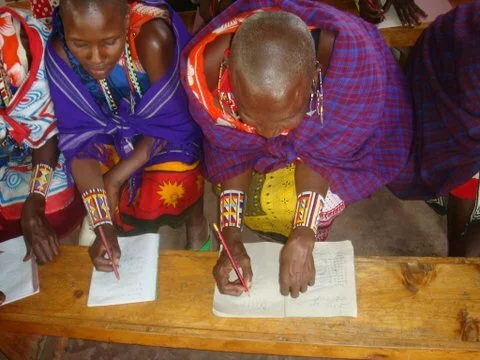In the coming days, a language spoken somewhere in the world will disappear. It happens roughly every two weeks. Of the estimated 6,000 languages spoken around the world, 43% of them are in danger of dying out, according to the United Nations (U.N.).
“When languages fade, so does the world’’s rich tapestry of cultural diversity. Opportunities, traditions, memory, unique modes of thinking and expression—valuable resources for ensuring a better future—are also lost,” the U.N. states.
 Today is International Mother Language Day, a day introduced by United Nations Educational, Scientific and Cultural Organization (UNESCO) in 1999 to recognize the importance of preserving and protecting language diversity. With this, and its goal to leave no one behind, UNESCO promotes multilingual education based on a learner’s mother tongue, or first language, to overcome barriers to education that Indigenous people can face.
Today is International Mother Language Day, a day introduced by United Nations Educational, Scientific and Cultural Organization (UNESCO) in 1999 to recognize the importance of preserving and protecting language diversity. With this, and its goal to leave no one behind, UNESCO promotes multilingual education based on a learner’s mother tongue, or first language, to overcome barriers to education that Indigenous people can face.
Worldwide, there are only a few hundred languages that have a solid presence in education systems and the public domain, and even fewer can be found in the digital realm. Educating someone in their mother tongue first bridges the gap and makes it easier when a new language is introduced in instruction.
“Research shows that education in the mother tongue is a key factor for inclusion and quality learning, and it also improves learning outcomes and academic performance. … And most importantly, multilingual education based on the mother tongue empowers all learners to fully take part in society,” UNESCO wrote last year.
Yet, it is estimated that 40% of the world’s population does not have access to an education in a language they speak or understand.
A visionary, ProLiteracy’s co-founder Dr. Frank Laubach recognized this. By 1965, Dr. Frank had visited 103 countries and worked with people from communities spanning 314 languages.
With an archive of his historic manuals in over 200 languages, we are continuing Dr. Frank’s work in a new age. By digitizing the literacy primers from his global literacy campaigns, which have fallen mostly out of print, we aim to preserve his work and increase access to educational content for both learners and teachers worldwide.
ProLiteracy member organizations can access the digital primers free of charge in Member Central on our platform Education Network. To date, we have digitized primers in 52 languages. As funding permits, we will continue adding materials in additional languages.
The theme of this year’s International Mother Language Day is “Multilingual education—a necessity to transform education.” Be a part of the transformation. A donation will allow us to continue the work of Dr. Frank.
